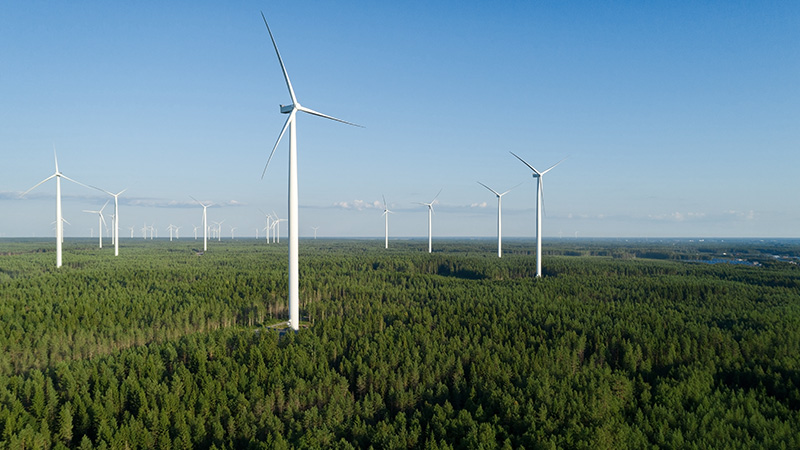Voluntary ecological compensation in brief
Ecological Compensation – Challenges and Opportunities

Related services
The overall reform of nature conservation legislation is currently underway. The government proposal concerning the Nature Conservation Act was submitted to Parliament on 12 May 2022 and the new act is intended to enter into force on 1 June 2023. One entirely new addition to the Act in particular has already given rise to a great deal of debate. The amendment in question concerns voluntary ecological compensation.

Pursuant to the proposed Nature Conservation Act, ecological compensation refers to “offsetting the degradation of species and habitat types by improving the state of species and habitat types outside the area of degradation after to primarily avoiding and secondarily minimising the degradation and, if possible, restoring the state of the degraded species and habitat types in the area of degradation”.
The degradation of a habitat type or the natural habitat of a species should be compensated in full. A certification for the offsetting measures can be applied for from the Centre for Economic Development, Transport and the Environment. Ecological compensation must be carried out as an independent action, which means that implementing the offset cannot be based on existing legislation or other obligations.
If the government proposal is approved in its current form, the new Nature Conservation Act will also include provisions on voluntary creation of nature values. It would be possible to receive certification for the created nature values which could then be used for voluntary offsetting. If the area used for creating nature values is large, it could be used for offsetting the environmental impacts of various projects. The created nature values cannot be protected by an authority decision in accordance with the Nature Conservation Act without the consent of the landowner.
What can voluntary ecological compensation be used for?
The purpose of the proposed legislation is to improve companies’ access to sustainable finance as well as to enable landowners to engage in a new form of business, i.e. the creation of nature values. Moreover, the proposed legislation is designed to support companies in demonstrating corporate social responsibility. The possibility to an authority certification to be included in the Nature Conservation Act may be conducive to promoting the credibility and the bankability of the offset measures while also creating new business opportunities for landowners.
The financing terms in the international financial market increasingly reflect the requirements of both the investors and the financiers that the companies applying for a loan compensate their environmental impacts. The government proposal makes a particular mention of the regulation concerning the EU taxonomy for sustainable finance and the included ‘do no significant harm’ criteria, pursuant to which attention must be paid to inter alia the environmental objectives concerning the protection and restoration of biodiversity and ecosystems when assessing the environmental sustainability of economic activities. With certified voluntary compensation under the Nature Conservation Act, companies would thus have a new way to demonstrate that their project meets the prerequisites for sustainable finance.
The functionality and significance of the proposal remains to be seen. The assessment of ecological compensation will require that the authorities acquire new resources and know-how. A practical challenge in assessing the sufficiency of ecological compensation lies in the fact that ecology is complex and that there are always uncertainties associated with analysing the offset measures’ overall effect on biodiversity. It is evident that the sufficiency assessment will be influenced by the precautionary principle, a well-established principle in environmental law which is proposed to be included in the new Nature Conservation Act. This may complicate the assessment’s foreseeability and transparency from the operators’ perspective. That said, in accordance with the case law policies of the European Commission and the Court of Justice, the application of the precautionary principle must always be in line with the principle of proportionality. Therefore, the functionality of voluntary ecological compensation in practice will also depend on how these principles are reflected in the environmental administration’s application procedure and assessment of the offset measures.
The new Nature Conservation Act also presents landowners with a new form of business: the creation of nature values. Landowners can apply for the nature values they create to be entered into a compensation register. Operators can then purchase them for a market-based fee to be agreed and use them as advance offset. A new contractual framework will have to be developed for the offset purchase. Large areas suitable for nature value creation make it possible to engage in compensation pool activity, where nature values are created in advance to be used for ecological compensation. Such operations are already in use in Germany and Sweden, among others.
If realised, the Nature Conservation Act reform would enable certified voluntary compensation and offer companies a new way to carry out their social responsibility. However, from the operators’ perspective it is important that the requirements set for the offset measures are realistic and in line with the principle of proportionality.






